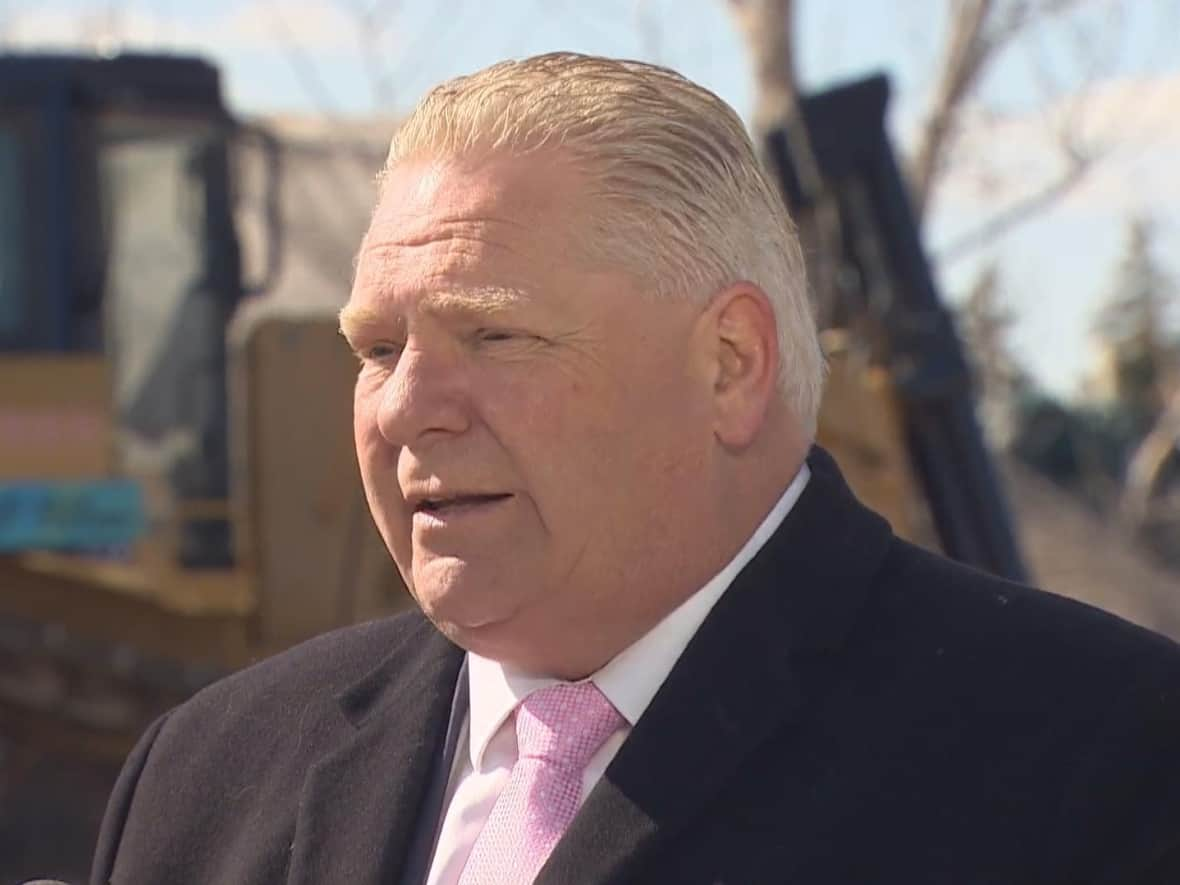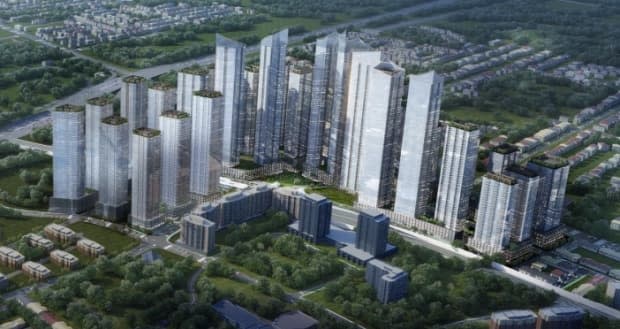Ontario formally announces massive condo project in York Region while critics sound alarm

The provincial government has formally announced its approval of controversial zoning orders that will allow for the construction of two condo communities consisting of 40,000 units in York Region — though some in the area say it won't be able to handle such a huge influx of people.
In a news release Wednesday, the province said the new transit-oriented communities (TOCs) at the Future Bridge and High Tech stations along the Yonge North Subway Extension will help reduce traffic gridlock and create new jobs in the region.
The government also said that the TOC proceeds will fund and build an additional transit station at Royal Orchard, which would improve transit access for people in Thornhill, Markham and York Region.
"After decades of inaction by previous governments, our government is saying 'yes' to building housing and subways," said Premier Doug Ford, in a statement.
"Others will find any reason to say 'no' to delay desperately needed housing and transit with more studies, committees or reports. Instead, our government is keeping costs down for families by building more homes and tackling gridlock head-on by building subways, Highway 413 and the Bradford Bypass."
Residents concerned about planned infrastructure
CBC News reported last week that provincial zoning orders for the projects were approved late Thursday. Neighbours and city officials said at the time they are concerned the planned infrastructure — including schools and hospitals — won't be able to support the ballooning population they would bring.

Graham Churchill, executive director for community group A Better Richmond Hill, previously said several pleas made to Ford not to go ahead with the development in its present form have fallen on deaf ears.
"Rethink this, Doug. This is insane," Churchill said on Friday.
"What you are doing is not good for Toronto, it is not good for the GTA, it will economically wreck us."
In its statement Wednesday, the province said MZOs are being used to help "cut unnecessary red tape" and deliver homes and transit sooner for people in the region. Across the two developments, there will be 67 highrises, some 80 storeys tall.
Churchill told CBC News last week that there won't be enough businesses and jobs for people.
"What this will do is because they're not making this an employment zone, everybody who lives here will have to leave to get to work," he said.
"Now, where do they go? Well, they're either going to get in their cars, which will just jam up all the roads or they're going to get on the subway going southbound, which is already at capacity south of Sheppard, which is a problem because now nobody in Toronto is going to be able to get seats in the subway."
MZOs used 44 times over 2 years
According to the auditor general, the government has used the fast-track method of MZOs 44 times in a two-year period. Prior to this period, they were used around once a year.
"These Minister's Zoning Orders will help create transit-oriented communities while building more than 40,000 much-needed new homes for Ontarians and their families," said Steve Clark, minister of municipal affairs and housing, in a statement.
In a subsequent statement, Zoe Knowles, director of communications for Clark, referred to the orders as eMZOs, or "enhanced minister zoning orders" — a new process that the province says includes more collaboration with municipalities.
"Our government has had extensive discussions with the City of Markham, the City of Richmond Hill and York Region, and public consultations before requesting these zoning orders," Knowles said.
However, Richmond Hill Coun. Tom Muench previously told CBC News that there was need for "more collaboration and discussion" on the project.
"There wasn't full transparency and openness and discussion with the community, with people like myself, and there were other options that weren't even considered," he said.


